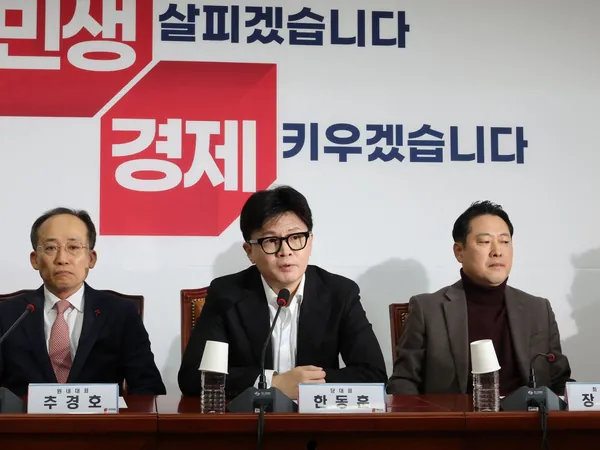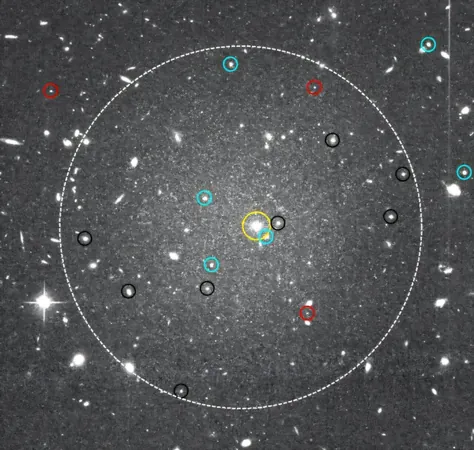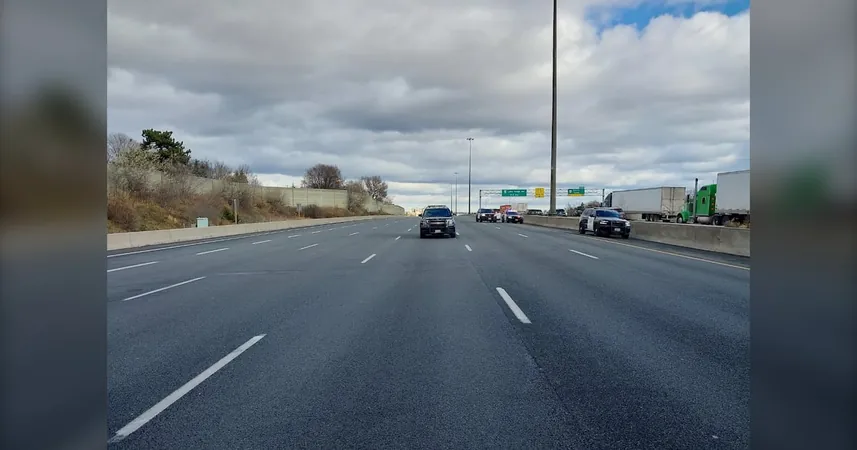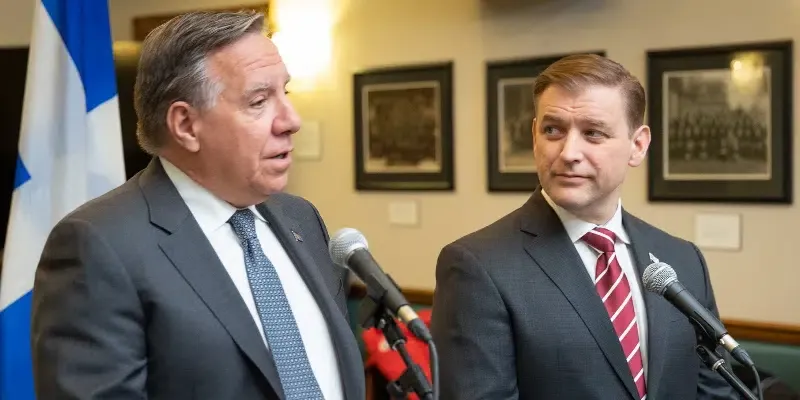
Political Turmoil in South Korea: Calls to Suspend President Yoon Suk-yeol's Powers Amid Controversy
2024-12-06
Author: Charlotte
Political Turmoil in South Korea: Calls to Suspend President Yoon Suk-yeol's Powers Amid Controversy
In a dramatic turn of events, Han Dong-hoon, the leader of South Korea's ruling People Power Party (PPP), has called for an immediate suspension of President Yoon Suk-yeol’s powers. This seismic shift comes on the heels of alarming allegations that President Yoon sought the arrest of key political adversaries following his controversial and brief declaration of martial law.
Han, who previously voiced his opposition to the impeachment efforts against Yoon, cited 'credible evidence' that the president had ordered high-ranking military and intelligence officials to detain major political figures, branding them as 'anti-state forces.' In his statements, Han expressed concern that Yoon's actions jeopardized national security and stability, urging the necessity to act decisively to protect the nation.
The PPP leader revealed shocking details during a closed-door briefing with the National Assembly's intelligence committee, claiming that Yoon had directly intervened, demanding the arrest of prominent legislators, including himself and Democratic Party leader Lee Jae-myung. According to Han, a late-night phone call from Yoon to the head of the National Intelligence Service suggested a clear intent to 'get rid of' dissenting political voices.
While Yoon's office has swiftly denied these accusations, asserting that no such orders were given, the atmosphere remains charged. The president had placed South Korea under martial law for approximately six hours this week, an act that harkened back to the country’s historical struggles with authoritarian rule. This shocking declaration prompted swift backlash, as the National Assembly mobilized to repeal Yoon's order with a unanimous vote of 190 against.
Adding to the turmoil, Yoon is not only facing calls for impeachment but is also under investigation for treason. His administration is currently entangled in controversy, with high-profile figures such as the former Defense Minister and Army Chief of Staff also implicated in this unfolding crisis.
Han’s sudden shift from defending Yoon to advocating for his suspension signals a potential fracture within the ruling party in the face of public outcry. The opposition Democratic Party is planning a vote on Saturday night to initiate impeachment proceedings against Yoon, requiring at least eight members from the PPP to achieve the two-thirds majority in the 300-member National Assembly.
The implications of such a vote are profound. If passed, Prime Minister Han Duck-soo would assume the presidency while the Constitutional Court deliberates. However, the court currently faces three vacancies, making it imperative that all six available justices support the motion for removal to effect a change in leadership.
Public sentiment towards Yoon has plummeted, with a recent Gallup Korea poll revealing an approval rating of just 13 percent, reflecting growing discontent among citizens. As protests are anticipated this weekend, with tens of thousands expected to rally for Yoon’s resignation, the political future of South Korea remains uncertain.
As the nation grapples with these escalating tensions, questions arise about the balance of power in the government and the safeguarding of democratic processes in South Korea. Will this crisis lead to a historic impeachment, or can Yoon withstand the mounting pressures? The coming days are set to be pivotal in the annals of South Korean politics.









 Brasil (PT)
Brasil (PT)
 Canada (EN)
Canada (EN)
 Chile (ES)
Chile (ES)
 España (ES)
España (ES)
 France (FR)
France (FR)
 Hong Kong (EN)
Hong Kong (EN)
 Italia (IT)
Italia (IT)
 日本 (JA)
日本 (JA)
 Magyarország (HU)
Magyarország (HU)
 Norge (NO)
Norge (NO)
 Polska (PL)
Polska (PL)
 Schweiz (DE)
Schweiz (DE)
 Singapore (EN)
Singapore (EN)
 Sverige (SV)
Sverige (SV)
 Suomi (FI)
Suomi (FI)
 Türkiye (TR)
Türkiye (TR)